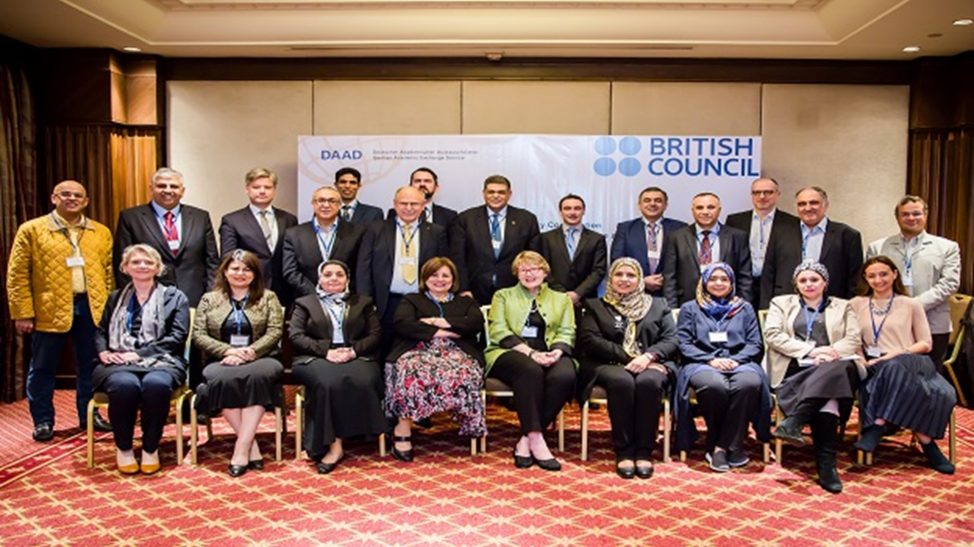Transnational Education: Classification, Data Collection & Use, and Quality Assurance

The event belonged to a joint project of the DAAD with the British Council which aims to support the development of a common terminology and international standards for data collection on Transnational Education (TNE). In Cairo, higher education and quality assurance experts from Egypt, Bahrain, Jordan, Lebanon, Morocco, Oman, Tunisia as well as from regional bodies came together in a closed workshop to share their knowledge and discuss experiences, prospects and challenges arising from the development of TNE in their countries.
Transnational education, or international programme and provider mobility comprising a broad range of forms such as degree programmes offered in partnership between host and sending country institutions, franchise degrees, international branch campuses or joint universities, has grown and spread over the past decades. The number of countries engaged in some form of TNE has risen to more than 100, and in some countries TNE already accounts for up to 40% of higher education provision.
The dynamic development reflects the increasing internationalisation and globalisation of higher education. At the same time, the constant change of TNE with new varieties and forms constantly evolving and a lack of commonly understood terms and definitions of the different modes of TNE make it difficult for national governments, quality assurance authorities and higher education institutions to assess the overall scope, quality and impact of TNE activity in and between countries.
Since 2014, the DAAD and British Council have collaborated on a number of projects related to different aspects of TNE. One of the major results of this collaboration was the proposal of a ‘Common TNE Classification Framework’ and a draft template for national level statistics on TNE. These tools are designed to support TNE active countries to gather relevant data for the development of appropriate policies and regulations and help with overall higher education enrolment planning. The current project focuses on further developing the common TNE Classification Framework for International Programme and Provider mobility (IPPM) and TNE Data Collection Guidelines through consultations and discussion with higher education policy makers and experts from ministries, higher education organisations and quality assurance bodies from a broad range of TNE active countries.
At the consultation event in Cairo, 24 participants over two days discussed and shared their experiences, expectations and challenges in connection with TNE in their home countries, most of them predominantly involved in TNE as hosting countries, in highly participatory and dynamic discussions and working groups.
The two days’ event was facilitated by the project researchers Dr. Jane Knight, an expert on international higher education of international renown from the University of Toronto, and Mr. John McNamara, economic researcher from Ireland, together with the DAAD / BC project managers Mr. Kevin van Cauter from the British Council UK, and Ms. Susanne Kammueller from DAAD Germany.
In their feedback given during and after the event, participants expressed that they were impressed with the cooperation project and confirmed the need for and usefulness of a common classification framework to assess and monitor TNE activity. Furthermore, they appreciated the interactive workshop set-up that focussed on active involvement in working groups and discussions to capture and discuss the experiences from each country represented in the workshop.
The final version of the TNE classification framework and Guidelines for TNE data collection developed in the joint project, incorporating the feedback and insight gained from the consultations in Cairo and other places, will be published in May and presented in a conference session chaired by DAAD Secretary General, Dr. Dorothea Rueland, at the Going Global Conference in London, May 23, 2017.
More information on Going Global Conference: https://www.britishcouncil.org/going-global/programme/sessions/tne-data-collection-and-management







